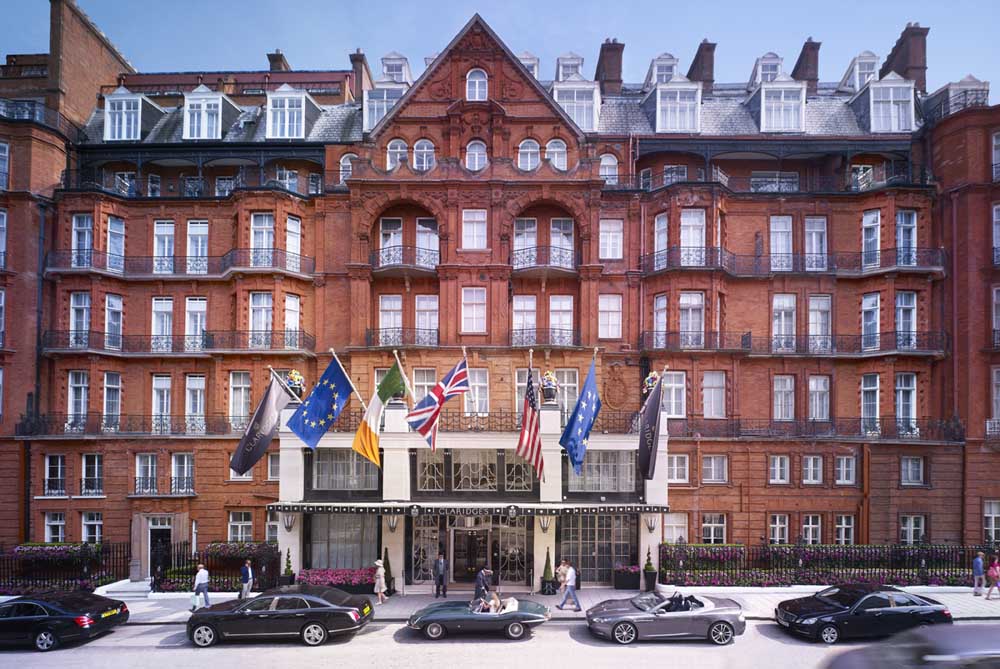‘Brexit’ vote draws interest in travel to Britain
Published 12:00 am Sunday, August 14, 2016

- Submitted photo via The New York TimesClaridge’s, an iconic hotel in London, draws luxury travelers. There has been a surge of interest in travel to Britain following its vote to leave the European Union — and low prices may be a reason.
It has not been even two months since Britain voted to leave the European Union, and already the travel industry is seeing the effects of the decision. While it’s too soon to determine how travel to Britain will be affected in the long term, for the time being, with the exchange rate of the pound at a more than 30-year low compared with the dollar, the region seems to be a more appealing destination for travelers from the United States.
The United States has long been Britain’s most valuable visitor market and one that continues to grow. Visits from the United States to Britain grew 10 percent to 3.3 million people in 2015 compared with 2014, according to VisitBritain, the national tourism agency. These travelers spent 3.3 billion pounds and represent the first time a single visitor market has broken the 3 billion-pound spending mark, said VisitBritain’s executive vice president for the Americas, Paul Gauger.
Trending
Since the Brexit vote June 23, there are indications that Britain is increasing in popularity.
According to data from British Airways, for example, in the last week of June, flight searches on ba.com from the United States to Britain increased 138 percent compared with June 17 to 23, and in the two weeks following the Brexit vote, flight searches increased 97 percent compared with the two weeks before.
Expedia.com saw a jump in both searches and sales. A company spokeswoman, Sarah Gavin, said that the site had a 30 percent increase in flight search volume from the United States to Britain in the weeks following the Brexit referendum, compared with the month before. Also, before Brexit, Expedia’s package business, where travelers book their flights and hotels together, from the United States to Britain was growing at 32 percent a year, but in the weeks after the vote, that number grew to 45 percent.
VisitLondon.com, London’s official tourism site, had a 38 percent rise in the number of visitors to its site from the United States in the week after Brexit, said a spokesman, Phil Nettleton. Also, from June 25 to July 20, the site had a 25 percent increase in traffic, compared with the same period last year.
Hotels, too, are seeing an uptick. Paula Fitzherbert, the public relations director for the Maybourne Hotel Group, a group of three luxury properties in London, said that the hotels had gotten more last-minute bookings. “Also, we’ve had more bookings for suites, perhaps because our guests, many of them American, are able to get more value out of the dollar and feel like they can treat themselves,” she said.
This surge of interest from travelers in the United States is expected, said Nadia Popova, the travel project manager for Euromonitor International, a Chicago-based market research company. “Britain, historically, is an expensive vacation destination, and all of a sudden, with the weakened pound, it’s become more affordable, so of course people want to come,” she said.
Trending
But while a trip to Britain from the United States may be cheaper than it has been in several decades, the opposite is true in Britain, where the weakened pound has made it more expensive for locals to travel internationally.
This is having its own impact on the travel industry.
Airbnb found that the number of bookings in Britain by British residents went up 122 percent in the several weeks since Brexit, compared with the same time the previous year, and indicating that more British are opting for a staycation.
And, post Brexit, Delta made the decision to reduce its U.S.-British flight capacity starting in January because of the decrease in demand of travelers coming to the United States from Britain.








